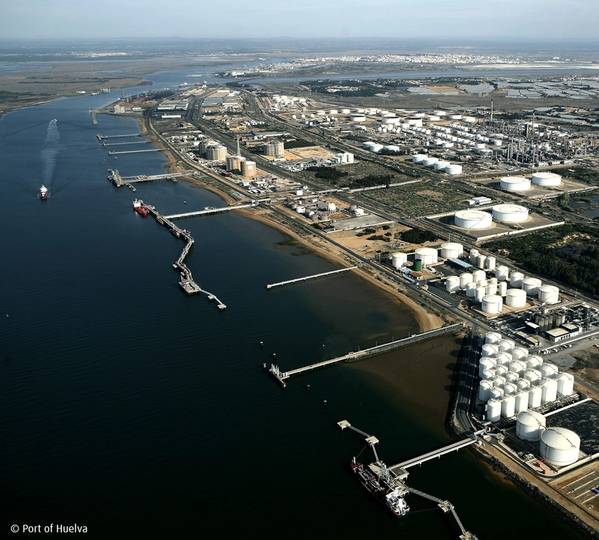GAC Spain Expands to Port of Huelva Offering Vessel Support
August 19, 2024

The Port of Huelva, Spain, from where GAC's new office will provide ship agency and logistics services to the shipping and energy sectors. Image courtesy GAC Spain
GAC Spain opened a new office at the Port of Huelva, positioning the global ship agent to serve its existing dry and liquid bulk customers, as well as gas carriers at Huelva. These include ship agency, husbandry, bunker fuels, customs clearance, crew change support and freight services, especially ship spares logistics.
Expansion of its footprint to Huelva comes after the ship agent opened an office at the Port of Algeciras, Spain’s largest port, in November 2023 to cater to vessels passing through the Strait of Gibraltar and support Spain’s growing green energy sector.
The Port of Huelva, among the top 10Spanish ports in terms of port traffic, saw an impressive handling of over 7.8 million tons of goods from January to March this year, a 7.71% increase from the previous year. The total movement of bulk liquids surged by 9.16% to over 6 million tonnes during the same period, positioning Huelva as a key energy hub for both conventional and renewable fuels. The port is the second biggest port in Andalusia, trailing only Algeciras, where GAC Spain has its head office.
- Part of the Andalusia Green Hydrogen Valley – Spain’s most ambitious renewable hydrogen project and one of the largest in Europe – the Port of Huelva plays a pivotal role in Spain’s energy transition. The $3.2 billion project, spearheaded by Spanish energy giant CEPSA, aims to accelerate the shift towards sustainable energy with the construction of two green hydrogen production facilities in Palos de la Frontera in Huelva, and San Roque in Campo de Gibraltar, Cadiz. These facilities will have a combined electrolysis capacity of 2GW, capable of producing up to 300,000 tonnes of green hydrogen annually. Their construction will also enhance the production of 2GW of biofuels and derivative products such as green ammonium and methanol, supporting the decarbonisation efforts of CEPSA customers in the manufacturing and heavy road transportation sectors.




